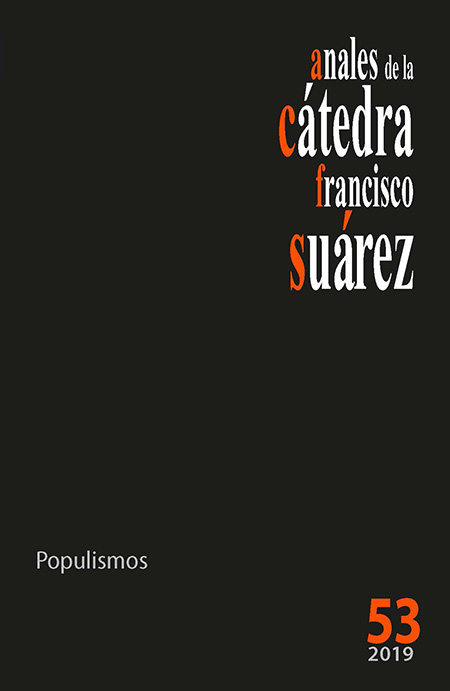Democracy versus Absolutism. Theological-Political Contrast between Baruch Spinoza and Thomas Hobbes
DOI:
https://doi.org/10.30827/acfs.v53i0.7780Keywords:
Democracy, Absolutism, Thomas Hobbes, Baruch Spinoza. Religion and politics, Natural law, Social contract, ConscienceAbstract
Outstanding coincidences and also important differences can be found when comparing the theories of Thomas Hobbes and Baruch de Spinoza, They initiate and reveal changes in political theory and practice that occur in a brief period of time but that, at the same time, are decisive. Ancestors of positivism, both shared ontological and methodological bases, which is often interpreted, for chronological reasons, as an influence of Hobbes on Spinoza. The differences between both are about the meaning of religion in relation to its role in politics; the relationships between divine revelation, natural law and reason, and the moral order; the natural law as the foundation of the legal-political system; the meaning and content of the social contract as the basis of the civil obligation. All these divergences lead to the most important of all, and that is that Hobbes is cast in an absolutism that ignores the rights of conscience, while Spinoza stands in defence of the internal forum.
Downloads
References
Bobbio, N. (1992). Thomas Hobbes. México: FCE.
Cerezo Galán, P. (2016). Razón, ciudad y democracia en Benito Spinoza. Revista de Estudios Políticos, n.º 172, pp . 13-45 .
Dilthey, W. (1947). Hombre y mundo en los siglos xvi y xvii. trad. española de Eugenio Imaz. México: FCE.
Domínguez, A. (2003). Introducción. En Spinoza, Tratado teológico-político . Madrid: Alianza.
García Ruzo, A. (2015). Spinoza y Hobbes sobre la teoría del Estado. En Solé, M. J. (ed.), Spinoza en debate. Buenos Aires: Miño y Dávila.
Hobbes, T. (1993). Leviatán. Trad. española de Carlos Mellizo. Madrid: Alianza. Hobbes, T. (2016). De Cive. Elementos filosóficos sobre el ciudadano . Trad. española de Carlos Mellizo. Madrid: Alianza.
Hölderlin, J. C. F. (2000). Hiperión o el eremita en Grecia. Trad. española de Jesús Munárriz. Madrid: Ediciones Hiperión.
Kant, I. (1968). Die Religion innerhalb der Grenzen der blossen Vernunft . En Kantswerke. Berlin: Akademie Verlag (Hay trad. española de Felipe Martínez Marzoa, Alianza Editorial, Madrid, 1986).
Salazar, L. (2002). El problema de la obligación política en Hobbes y Spinoza. Dianoia, vol. XLVII, n.º 48, pp . 67-88 .
Schmitt, C. (1945). El Leviatán en la teoría del Estado de Tomás Hobbes. Trad. española de Francisco Javier Conde. Madrid: Haz.
Solé, M. J. (2015). Spinoza o la Ilustración en debate. En Solé, M. J. (ed.), Spinoza en debate. Buenos Aires: Miño y Dávila.
Spinoza, B. (1914). De intellectus emendatione . En Opera quotquot reperta sunt, ed. de van Vloten y J. P. Land, Nijhoff, Hagae (Hay trad. española de Alfonso Castaño, Aguilar, Madrid, 1954).
Spinoza, B. (1988). Correspondencia. Trad. española de Atilano Domínguez. Ma- drid: Alianza.
Spinoza, B. (2003). Tratado teológico-político. Edición y traducción de Atilano Domínguez. Madrid: Alianza.
Strauss, L. (1936). The political Philosophy of Hobbes. Oxford: Clarendon Press. Tönnies, F. (1988). Hobbes. Trad. española de Eugenio Imaz. Madrid: Alianza. Warrender, H. (1957). The political Philosophy of Hobbes. Oxford: Clarendon Press .
Downloads
Published
How to Cite
Issue
Section
License
Authors are the owners of the rights to their works. ACFS requests that publication notice on ACFS is disclosed if they appear later in another place.

















